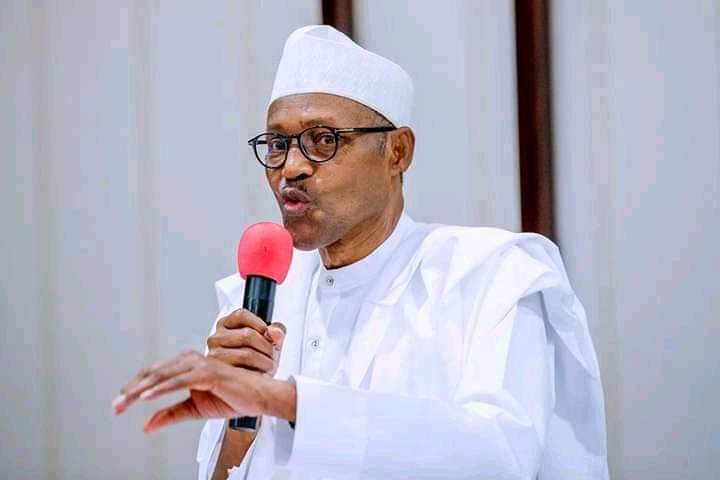By Bola Bolawole
Going through heaps of files, old newspapers and other records in my library a few days ago, I came across pieces of unsolicited advice I had offered mint-new President Muhammadu Buhari on how he could make a success of his tenure as the country’s fourth president circa the Fourth Republic, which started its run in 1999. One of the materials, titled “That Buhari’s anti-corruption war may not become ephemeral”, was published on 25th September, 2015 by The News, PM News, Daily Independent newspapers, among others. Recall that one of the pitfalls of the President Goodluck Ebele Jonathan’s administration was the humongous corruption that hallmarked that administration. And fittingly, the then opposition All Progressives Congress (APC) made the fight against corruption one of its cardinal programmes, to the admiration of many Nigerians. But will Buhari walk the talk? Will the war against corruption be an easy task? What will the new administration need to do to uproot the cankerworm of corruption? So concerned was I that I took it upon myself to offer Buhari pieces of advice that I felt could help him in his avowed war against corruption. That was almost eight years ago and the following was what I said, with slight editing:
Kaduna:Kidnapped Female Students of GSS Awon Kachia LGA Escape From Terrorists’ Den
“I feel strongly about the present administration’s war against corruption that I have decided to think aloud on some salient aspects of it. I wish that the right template is set for the war so that the pitfalls of our recent past can be avoided for the anti-corruption drive to make a roaring success. Fearful that the war as currently being waged could end up in acrimonies, I have chosen to take the risk of doing the unpopular here today, believing that we still have a significant section of the reading public that is discerning and which is, therefore, able to give this piece the careful consideration it deserves. But in the event that this hope is misplaced for whatever reasons, I have set my mind to travel this road all the same, even if it is hard and lonely, like the Jamaican reggae artist Jimmy Cliff crooned, believing with the late sage, Chief Obafemi Awolowo, that light beckons at the end of the tunnel. Henrik Ibsen, the German writer, says the strongest man is he who stands alone – especially on principles. We should get the template of this anti-corruption war right from the very beginning so that, in the end, it does not become so much sound and fury signifying little or nothing, apologies William Shakespeare.
There are two sides to the anti-corruption war: To block all leakages; and to recover looted funds. The Treasury Single Account policy is, perhaps, the central measure aimed at achieving the first objective; noble as it may look on the surface, it has drawbacks that are already sending alarming signals down the spine. It is estimated that money deposit banks will lose over a trillion Naira in funds. Many of the banks have started bracing up for this eventuality by down-sizing or right-sizing, a euphemism for retrenchment, which will further worsen an already bad situation of massive unemployment. Therefore, an adroit management of the economy that manifests in a balancing act that takes all contending issues and forces into consideration will have a more salutary effect on the economy than a one-way traffic, jackboot policy that may result in cutting the nose to spite the face.
BREAKING: Incumbent Gov Fintiri Wins Adamawa Guber Poll
It is good not only to go after looted funds but to also mete out appropriate punishment to the culprits to deter others. The other side of the coin, however, is that the processes involved are not as simple and straightforward as they appear on the surface. Stolen funds are difficult to track; they are expensive to locate and retrieve; and getting the support of foreign countries and international organisations does not come easy. Worse, is that it is time-consuming. Fears have been expressed that Buhari is spending a disproportionate part of his time chasing stolen funds to the detriment of governance. If the trend continues, we may in the end be kobo wise but Naira foolish. Effective governance must not be sacrificed on the altar of chasing after looted funds and should one threaten to stand in the way of the other, I will suggest we adopt the time honoured aphorism of “prevention is better than cure”.
Many critical stakeholders needed to sign up for the anti-corruption war are simply not doing so, leaving only noise-makers (apologies, Buhari!) to amuse themselves with public rallies and street parades all over the country. Politicians across the board are not supporting the war against corruption, save in mere rhetoric. Evidence: They have emphatically refused to emulate Buhari and Vice-President Yemi Osinbajo and declare their own assets publicly. Buhari and Osinbajo are the two-man riot squad in their vaunted war against corruption. APC governors, legislators and party leaders have declined to declare their assets publicly. Yet, this is the course of action expected of them if, truly, they mean to be the true harbingers of the CHANGE they vociferously trumpeted from the rooftop during the electioneering campaigns. As things stand, Buhari and Osinbajo are like Generals without troops. If, in an APC-led government, APC leaders will not lead by example, is it APGA or PDP that will do? I therefore suggest that the following categories of officials and politicians be compelled to make a public declaration of their assets if the much talked-about war against corruption is not to end up a ruse. One: Buhari and Osinbajo’s spouses and adult children should declare their assets. Our experience here has been that leaders hide much of their ill-gotten wealth under the cloak of friends and family members. Two: All political appointees should also declare their assets. In fact, this should be a condition for anyone who accepts such appointments. Three: All elected officials at Federal, State, and Council levels must follow suit. Four: All heads of Ministries, Departments, and Agencies of the three tiers of government. Five: All top civil servants from the level of Assistant Director. Six: All judges and judicial officers. Seven: All heads and principal officers of the anti-corruption agencies. Eight: Heads of military and paramilitary forces; and, finally, all national leaders\officers of the ruling party (APC).
A new but dangerous development is the tiny group of influential individuals that are believed to have thrown a cordon solitaire around the president. Some reports say they are the most vicious, feudal, conservative, and reactionary section of the Kaduna Mafia that someone described as the “Old School”. The hand of this group has been reportedly uncovered in many of the controversial appointments that Buhari has made. I propose that these gentlemen should take off their cloaks and emerge in the open. Lobbying is a legal and respectable profession in many democracies; the United States of America in particular. Let our own influence-peddlers and lobbyists come into the open to avoid conflict of interest. They should register with the Corporate Affairs Commission and pay tax to the state on the kill they make. We should avoid the pitfalls of the past by not replacing the Edwin Clarks and Asari-Dokubos with, perhaps, much more vicious characters from another section of the country.
For those in leadership positions, enlisting in the anti-corruption war is not optional but a task that must be done and all hands must be on the deck to achieve this mission. Buhari and APC’s statements before, during, and after the last election left no one in doubt that the anti-corruption war would be an important plank of their CHANGE mantra. APC party and elected leaders thus have not just a moral burden but also a bounden duty to enlist in the campaign. Any one not willing to declare his assets publicly should shun politics and public office. The anti-corruption war must be total, allowing for no half-measures. If there is the need to amend the Constitution to make this happen, so be it! The war must cut across political divides and not be reduced to a witch-hunt of perceived opponents; it also must not be sectional. It is important that, like Caesar’s wife, the drivers of the anti-corruption war must be above board; they must be the very first to submit themselves to scrutiny. He who comes to equity, as they say, must come with clean hands! It is important for everyone signing up for the anti-corruption war to walk the talk if the war is not to become ephemeral”.
As I said, that was almost eight years ago; four months after Buhari took office and the same Buhari now has less than two months to end his two-term tenure of four years each. If an opinion poll is conducted today, the verdict will, decidedly, be that Buhari has failed in his anti-corruption war. In fact, corruption gathered so much momentum under Buhari that the administration stopped making any pretence at fighting it! Why did Buhari fail in his war against corruption? Buhari failed because, surprisingly, he showed up as a very weak leader, very much unlike what Nigerians had expected, judging from a misreading of his tenure as a military dictator (1983 -1985). Buhari was sectional, sectarian and nepotistic and that alienated a vast number of Nigerians from him, his administration and its touted policies. He suffered loss of trust, confidence and support. His person, policies and pronouncements therefore rang hollow in the ears of many Nigerians. Buhari also did not live by example. He allowed family and people around him to fly on the spoils of office and everyone else took a cue from that. The first thing people try to understand about a leader, any leader, is his template. Once this is appropriately deciphered, all else is smooth sailing. At the initial stage when everyone thought Buhari was still the same Buhari of the Tunde Idiagbon era, his “body language” alone was enough to strike fear into any heart but the moment people learnt that this Buhari has lost his mojo and is now a toothless bulldog, it became a bazaar worse than what the country suffered under Jonathan. .
Asiwaju Bola Ahmed Tinubu must learn from Buhari’s mistakes and or weaknesses if he is to make a difference. To succeed where Buhari failed, he must be a strong and firm leader. He must lead by examples. He must rein in his family, friends and cronies. He must build an elite consensus that abhors corruption and or set limits for its perpetration, as was the case with the politicians of the First Republic. Not that there was no corruption then; which was why the first coup plotters described them as “the ten percenters” but, today, the entire 100 percent is gobbled down. Not only that, contract sums are outrageously inflated and a shoddy job is done in the end.
Until these are addressed, any so-called war on corruption will remain a mirage.
Former Editor of PUNCH newspapers, Chairman of its Editorial Board and Deputy Editor- in-chief, BOLAWOLE was also the Managing Director Editor-in-chief of THE WESTERNER newsmagazine. He writes the ON THE LORD’S DAY column in the Sunday Tribune and TREASURES column in New Telegraph newspaper on Wednesdays. He is also a public affairs analyst on radio and television.
turnpot@gmail.com 0807 552 5533










